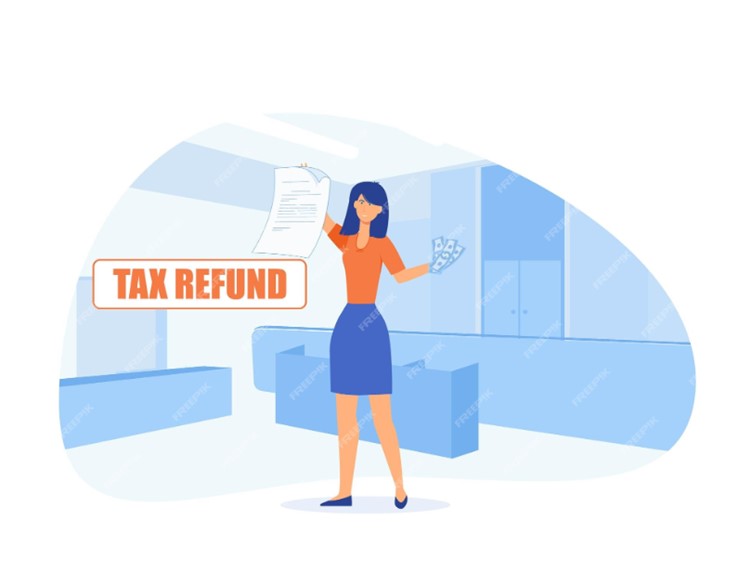-
News
-
Blog
-
Archive

Navigating the UK tax system can be complex, and it's not uncommon for individuals to overpay tax. A tax refund is a reimbursement from HM Revenue & Customs (HMRC) when you've paid more tax than you owe. This blog post provides a comprehensive guide on how to check if you're eligible for a refund and the steps to claim it, with expert advice from local tax accountants in Bolton.
What Is a Tax Refund and What Triggers It?
A tax refund is essentially a repayment of tax you've overpaid to HMRC. Several factors can lead to overpayment, including:
- Incorrect Tax Code: Your tax code determines how much tax is deducted from your income. If it's wrong, you could be paying too much or too little.
- Pension Withdrawals: Emergency tax is often applied to pension withdrawals. If you only accessed your pension once, you're likely due a refund.
- PAYE Overpayment: This can occur if you've changed jobs, worked part-time, or had periods of unemployment during the tax year.
- Expenses: You may be able to claim back tax on work-related expenses, such as travel, uniforms, or equipment.
How to Check if You're Owed a Refund
Before starting the claim process, it's essential to determine if you're actually owed a refund. Here are several ways to check:
- Personal Tax Account: Access your personal tax account on the GOV.UK website. This allows you to view your tax records, including your estimated tax liability and any overpayments.
- HMRC App: Download the HMRC app to your smartphone or tablet. This provides a convenient way to check your tax information and track any potential refunds.
- P800 Letters: HMRC may send you a P800 letter if they believe you've overpaid tax. This letter will outline the amount you're owed and how to claim it. If you receive a P800 letter, carefully review the details and follow the instructions provided.
Ways to Claim a Refund
The method for claiming a tax refund depends on whether you're employed under PAYE (Pay As You Earn) or are self-employed and file a Self-Assessment tax return.
PAYE (Pay As You Earn):
- Online Claim: If you're eligible, you can claim your refund online through your personal tax account. HMRC will guide you through the process.
- Cheque: In some cases, HMRC may issue a cheque for the refund amount. This will be sent to your registered address.
- Phone: You can contact HMRC by phone to discuss your refund. However, this option may involve longer wait times.
- Form R40: Use form R40 to claim back tax if you are not required to complete a Self Assessment tax return.
- Form P50: Use form P50 if you've stopped working and aren't receiving benefits.
Self-Assessment:
- Self-Assessment Repayment Request: If you file a Self-Assessment tax return, you can request a repayment of any overpaid tax as part of the return process. The overpayment will either be refunded to your bank account or offset against future tax liabilities.
Common Errors & How to Avoid Them
Several common errors can lead to tax overpayments. Being aware of these can help you avoid them in the first place:
- Wrong Tax Codes: Regularly check your payslip to ensure your tax code is correct. If you believe it's wrong, contact HMRC immediately.
- Incorrect Information: Ensure all information provided to HMRC is accurate, including your address, bank details, and employment details.
- Not Claiming Expenses: If you're eligible to claim work-related expenses, make sure you do so. Keep accurate records of all expenses.
Time Limits & What Happens After 4 Years
There are time limits for claiming tax refunds. Generally, you can claim a refund for up to four tax years from the end of the tax year in which the overpayment occurred. For example, you have until 5 April 2024 to claim for the 2019/20 tax year.
After four years, it becomes significantly more difficult to claim a refund. HMRC may refuse the claim unless there are exceptional circumstances.
Conclusion & Call to Action
Claiming a UK tax refund can be a straightforward process if you understand the steps involved. By checking your tax records, identifying potential overpayments, and following the correct claim procedures, you can reclaim any tax you're owed. If you're unsure about any aspect of the process or need personalised assistance, don't hesitate to contact local tax accountants in Bolton. Our team of experienced professionals can provide expert guidance and support to ensure you receive the maximum refund possible. Contact us today for a consultation and let us help you navigate the complexities of the UK tax system.